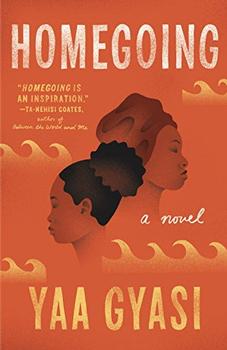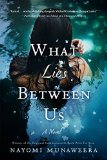Summary | Excerpt | Reading Guide | Reviews | Beyond the book | Read-Alikes | Genres & Themes | Author Bio

A Novel
by Dinaw MengestuA pervading sense of low-level despair, so long
present that it has become his accepted state, pervades the
voice of Sepha Stephanos, the narrator of Mengestu's first
novel. For most of the 17-years Sepha has been in the USA he has
run a convenience store in the Logan Circle area of Washington
DC, at first with enthusiasm that this would be his first step
towards achieving the immigrant dream, but in recent years with
an increasing sense of despondency and hopelessness.
In the early 90s a degree of hope enters his life when the
run-down building next to his rented rooms is bought by a white
woman who quickly renovates it to its former glory, in the
process rubbing salt in the wounds of the long time residents of
the neighborhood who bitterly resent the gentrification process
that is causing many to be forcibly evicted from their homes.
Judith, a history professor, and her precocious, demanding but
generally likable bi-racial 11-year-old daughter, Naomi, quickly
befriend Sepha who, for the first time in years, feels a ray of
connectedness and even harbors romantic aspirations. Aspirations
that his only two friends, Joseph from the Congo and Kenneth
from Kenya gently mock, having themselves long-grown cynical of
American ways.
Books about immigration, whether fiction or nonfiction, tend to
fall into two camps - rags to riches or riches to rags. However,
there is one constant - the immigrant's new life is different,
often substantially so, to the path that would have been
followed in his or her own country, and therefore expectations
have to be remapped and dreams adjusted, for better or worse.
The Beautiful Things That Heaven Bears draws strongly on the
discrepancy between the immigrant's dreams of his new country
and what is often the harsh reality. We see this through the
eyes of Sepha and his two friends who, despite being from three
different African countries, share a common bond - the feeling
of perpetually not belonging. Their anchor is their weekly
meeting in the back room of Sepha's rundown convenience store
where they chew relentlessly over events in Africa, past and
present. Another viewpoint on the immigrant experience is
offered by Sepha's uncle, a former big-wig
in the Ethiopian government, who lives in a small apartment in
an Ethiopian dominated tenement and drives a cab and, during the
years of the Ethiopian "Red Terror", carried out a
one-sided and increasingly disillusioned correspondence with the
sitting US-Presidents of the time.
We are awash (and happily so) in 'immigrant' novels by Asian
writers, in particular from India, but there has been relatively little written about
the experience of immigrating to the "western world" by
contemporary African writers. Although the specific
experiences of
Mengestu's nuanced characters are unique to them, the feeling of
living between two worlds is something that many of us can
relate to.
Published as Children of The Revolution in the UK, The
Beautiful Things that Heaven Bears was the well-deserved winner of the
2007 Guardian First Book Award.
Dinaw Mengestu (pronounced dih-now men-guess-too) was
born in Addis Ababa, Ethiopia, in 1978. In 1980 he immigrated to
the United States with his mother and sister, joining his
father, who had fled the communist revolution in Ethiopia two
years before. He is a graduate of Georgetown University and of
Columbia University's MFA program in fiction, and is the
recipient of a 2006 fellowship in fiction from the New York
Foundation for the Arts. The Beautiful Things that Heaven
Bears is his first novel. He has also reported
stories for Harper's and Jane magazine, profiling a young woman
who was kidnapped and forced to become a soldier in the brutal
war in Uganda; and for Rolling Stone on the tragedy in Darfur.
In high school, Mengestu started trying to figure out who he was. "I wanted an identity so badly," he says. "I was never going to
be black enough. I was in an all-white Catholic school." There
had to be something, he thought, that he could "carve and
create" for himself. The answer was Ethiopia, so he started
reading everything he could about the country - what started as
a "sentimental" attachment built, over the course of 10 years,
into a real connection (although it was only recently that he
returned to Ethiopia for the first time). While at Georgetown he started taping
interviews with family members, pressing his father to talk
about events such as his uncle's death. He
currently lives in Paris where he's writing a second novel set
in a small town in the American Midwest.
![]() This review was originally published in The BookBrowse Review in March 2007, and has been updated for the
March 2008 edition.
Click here to go to this issue.
This review was originally published in The BookBrowse Review in March 2007, and has been updated for the
March 2008 edition.
Click here to go to this issue.

If you liked The Beautiful Things That Heaven Bears, try these:

by Yaa Gyasi
Published 2017
Winner of the 2016 BookBrowse Debut Author Award
A novel of breathtaking sweep and emotional power that traces three hundred years in Ghana and along the way also becomes a truly great American novel. Extraordinary for its exquisite language, its implacable sorrow, its soaring beauty, and for its monumental portrait of the forces that shape ...

by Nayomi Munaweera
Published 2017
From Nayomi Munaweera, the award-winning author of Island of a Thousand Mirrors, comes the confession of a woman, driven by the demons of her past to commit a single and possibly unforgivable crime.
Too often we enjoy the comfort of opinion without the discomfort of thought.
Click Here to find out who said this, as well as discovering other famous literary quotes!
Your guide toexceptional books
BookBrowse seeks out and recommends the best in contemporary fiction and nonfiction—books that not only engage and entertain but also deepen our understanding of ourselves and the world around us.